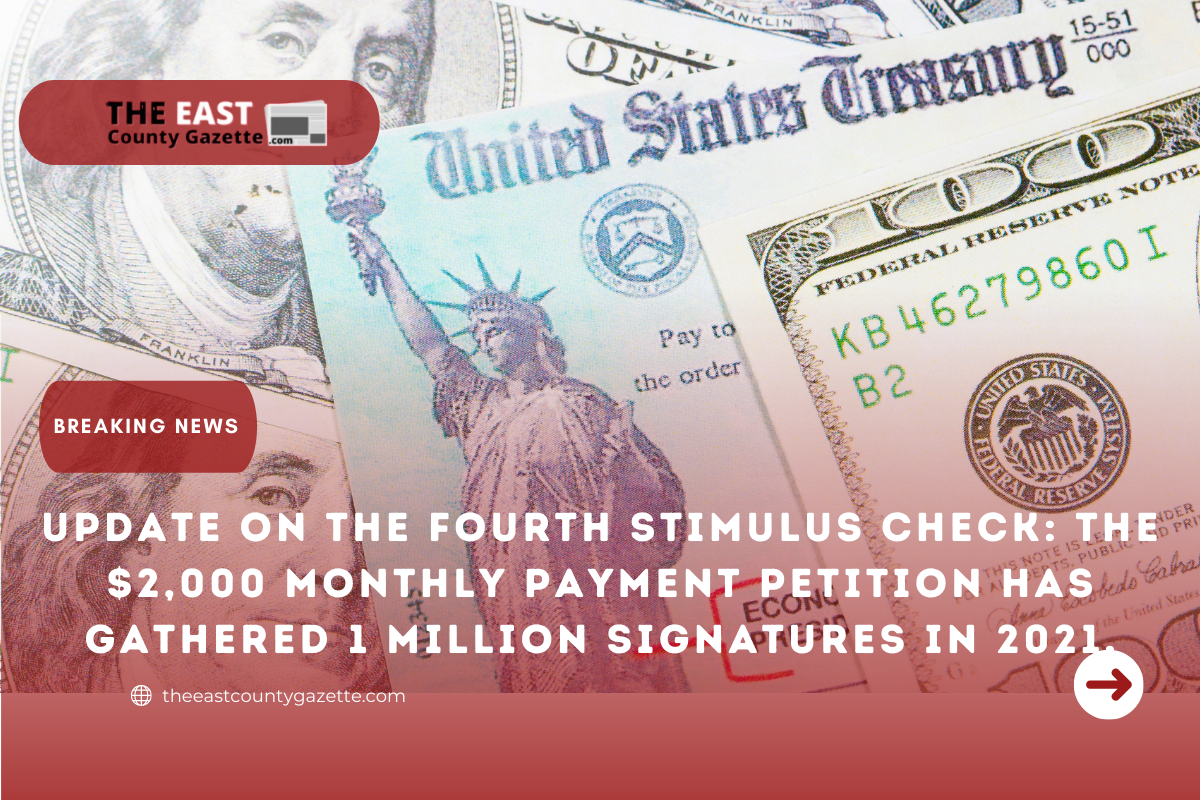Even though a petition for $2,000 monthly stimulus checks did not meet its objective by 2021, it gained around 1.25 million signatures in the second year of the pandemic, which was considered a success.
When businesses were forced to close in March 2020 in order to slow the spread of COVID-19, Stephanie Bonin, a Denver restaurant owner, organized a petition to stop it.

During the course of the epidemic, her petition gained traction, and over 2.9 million individuals signed it, supporting Congress’ decision to make recurring monthly payments to Americans in need of financial assistance.
Bonin’s petition demanded that adults make $2,000 monthly payments and children make $1,000 monthly payments, according to the Times. She maintained that monthly payments would assist Americans until they were able to get back on their feet and would prevent communities from falling into financial catastrophe.
Over the past two years, the Denver restaurant owner has kept signatories up to date on the situation, noting that it took Congress nine months to send out the second stimulus check, whereas people simply needed “moments to spend” the money.
She called for Congress to establish legislation that would set up triggers that would automatically send money out if the United States were to experience specific economic circumstances.
Adam Ruben, head of the Economic Security Project, previously told Newsweek that he had discussed automatic stabilizers with representatives of the White House and the Senate Finance Committee in May, according to a prior report.
The stabilizers, which might be tied to the level of unemployment, would trigger the issuing of stimulus cheques as well as the expansion of unemployment insurance benefits.
Recommended Read: Student Debt Cancellation is Insult to Millions of Americans. Here’s Why?
According to Ruben, “putting these kinds of triggers in place would smooth out the recovery and ensure that no one is left at the mercy of Washington’s stalemate in future recessions.”
Using automatic stabilizers would have the advantage of removing the reliance on congressional negotiations or party politics for the distribution of assistance in the future.
But it would still require politicians to come to a consensus on what type of relief should be provided, as well as when it should be delivered. While this has been going on, Republicans and Democrats have struggled to come to terms with COVID relief measures.
With the prospect of another round of direct payments becoming increasingly remote, Bonin turned her attention to the enlarged Child Tax Credits.
In an interview with Newsweek, she said she considers it a victory because, while it is not a direct payment like the first three stimulus checks, it is still a recurring payment that Americans can rely on every month.
Bonin recognized that not everyone who signed the petition would agree with her support for increased Child Tax Credit payments, so she established a new petition that is especially targeted at families who get the payments.
In a matter of weeks, that petition had garnered approximately 77,000 signatures.
In spite of the fact that the second round of stimulus checks is unlikely to be issued in the near future, Bonin’s original appeal for $2,000 monthly payments continues to gain support.

